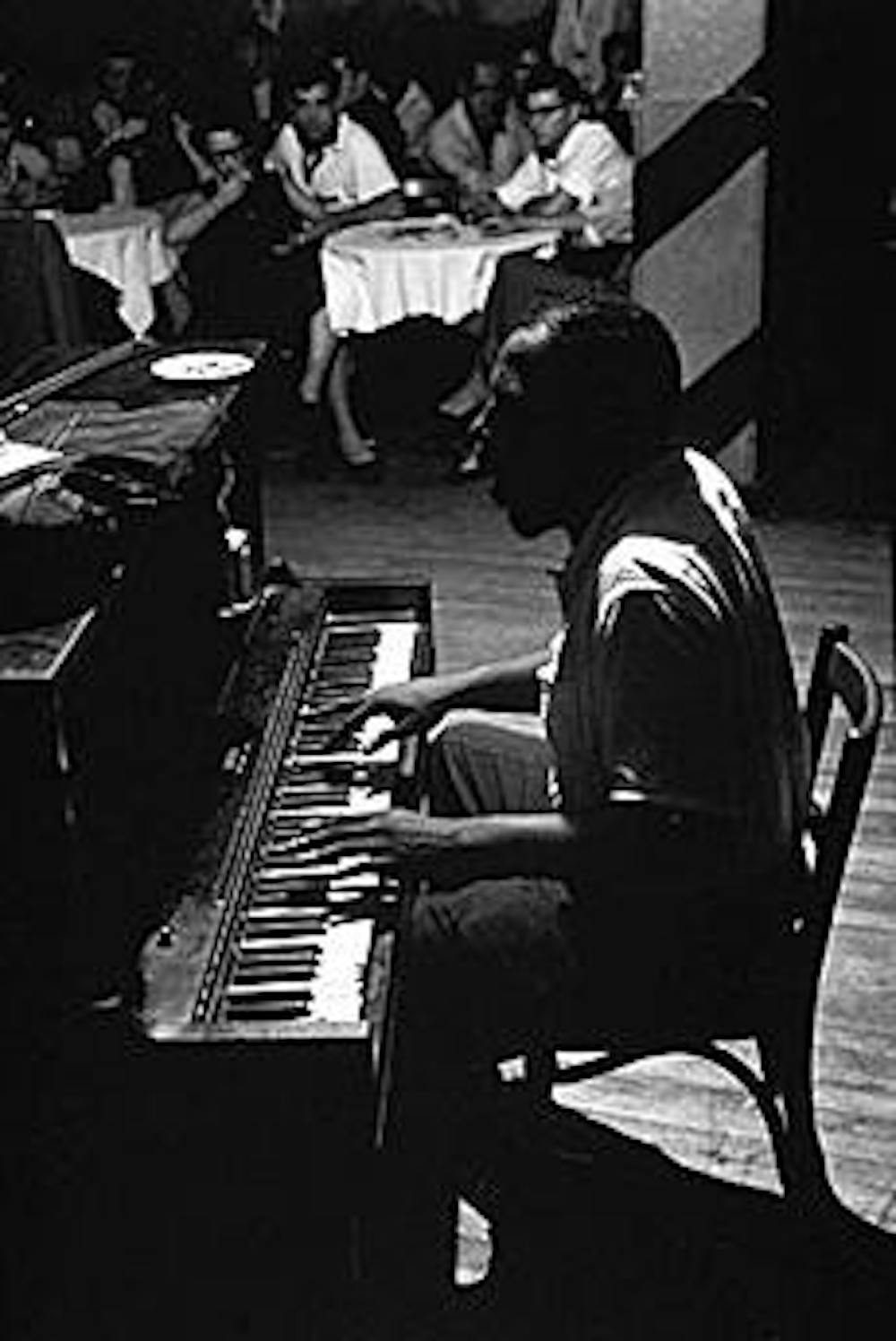Many moons ago, piano legend Thelonius Monk made his reputation by changing the way pianists viewed Western Civilization. His compositions stand as staggering contradictions- classic standards that can never truly be duplicated, layered with rich dynamics that seem motionless. Monk never just challenged conventions. He melted them without batting an eyelash.
When the Thelonius Monk Institute of Jazz held its 19th annual skills competition, the focus came back home for T.S. Monk, son of Thelonius and co-founder of the Institute. The 12 competitors from around the world weren't just exhibiting their own extraordinary talents, but honoring his father as well. The semi-final round where they were all given the chance to display their talents was held at the Baird Auditorium of the Museum of Natural History with the finals to take place at an all-star gala at the Kennedy Center's Eisenhower Theater the next night.
Each year the Monk Institute assembles gifted up-and-coming jazz artists from around the world to award what the distinguished panel of judges deems to be the most promising talent. A $20,000 scholarship is given to the winner, with second and third place competitors receiving $10,000 and $5,000 scholarships, respectively. The judges represented some of the most gifted living pianists: Herbie Hancock, Randy Weston, Danilo Perez, Andrew Hill, Renee Rosnes and the esteemed Dr. Billy Taylor all presided.
The competition every year proves to be fierce, with a kaleidoscope of styles and music backgrounds on display. Each player in the trio format was backed by drummer Carl Allen and bassist Rodney Whitaker, both renowned in the college-refined era of the Young Lions, which dominated the late 1980s and '90s.
The performances themselves ranged from full bodied to playful, both crowd-pleasing and structurally complex. In the end, three wholly different styles were chosen from three radically different players.
Tigran Hamasyan, an Armenian native and current USC student, won a slot in the finals for his endlessly complex and lightning-speed style. Hamasyan is, quite simply, unlike any piano player around the world today, jostling rhythms and avant-garde notes with mad scientist-like determination, a marvel in every sense of the word.
Seattle native Aaron Parks also found himself a finalist by layering complex dreamscapes over paper-thin melodies that at any moment threatened to tear.
Rounding out the last of the three was Gerald Clayton, adorned in dreadlocks, the son of legendary bassist John Clayton. A crowd favorite for his enthusiasm and relaxation, Clayton played breathtaking opuses in a merger of jazz and western classical, reminiscent of John Lewis.
The finals held the next night had a surreal aura, with a series of unforgettable images. Jazz greats from all walks of the genre came to pay homage to the Monk Institute and celebrate its 20th year in style. Joshua Redmond and Wayne Shorter exchanged saxophone riffs on the Miles Davis standard "So What," creating a cross-generational battle. Jane Monheit could be seen lounging on Herbie Hancock's piano during a scintillating version of "Detour Ahead" and thanking the Monk Institute for the opportunity they had provided her as a contestant years ago.
Patti Austin raised all boats with her scat on "How High the Moon" while Anne Hampton Callaway and Terence Blanchard made for a powerful team on "Blues in the Night."
No one was prepared for what came next. Honorary event co-chairs Colin Powell and Madeline Albright showed up to praise the institute and present the Marie Fisher Founders Award, which was unannounced on all programs. As they listed the recipients' accolades the audience started to stir.
With enthusiasm, former Secretary Powell boomed, "Ladies and gentlemen, the eighth, ninth and tenth Wonder of the World, Stevie Wonder!"
Wonder made his way on stage to give his heartfelt thanks to the jazz community, which always provided a sense of humility in his earliest days. After accepting the award, he launched into an unforgettable version of the ballad "Midnight Sun," leaving the theater awestruck.
To the surprise of many in attendance, it was Tigran Hamasyan who took home first place, with Gerard Clayton placing second and Aaron Parks third. The heirs to Monk's legacy, all the competitors showed style, innovation and limitless enthusiasm to share the stage with every icon in attendance. After an all-star finale of the Monk standard "Straight, No Chaser," every performer from four generations of jazz music filed onto the stage, where up-and-coming students could stand next to Quincy Jones and feel perfectly at home. The stage swelled with pride for the 20 years past and the next 20 yet to come for the Monk Institute.





